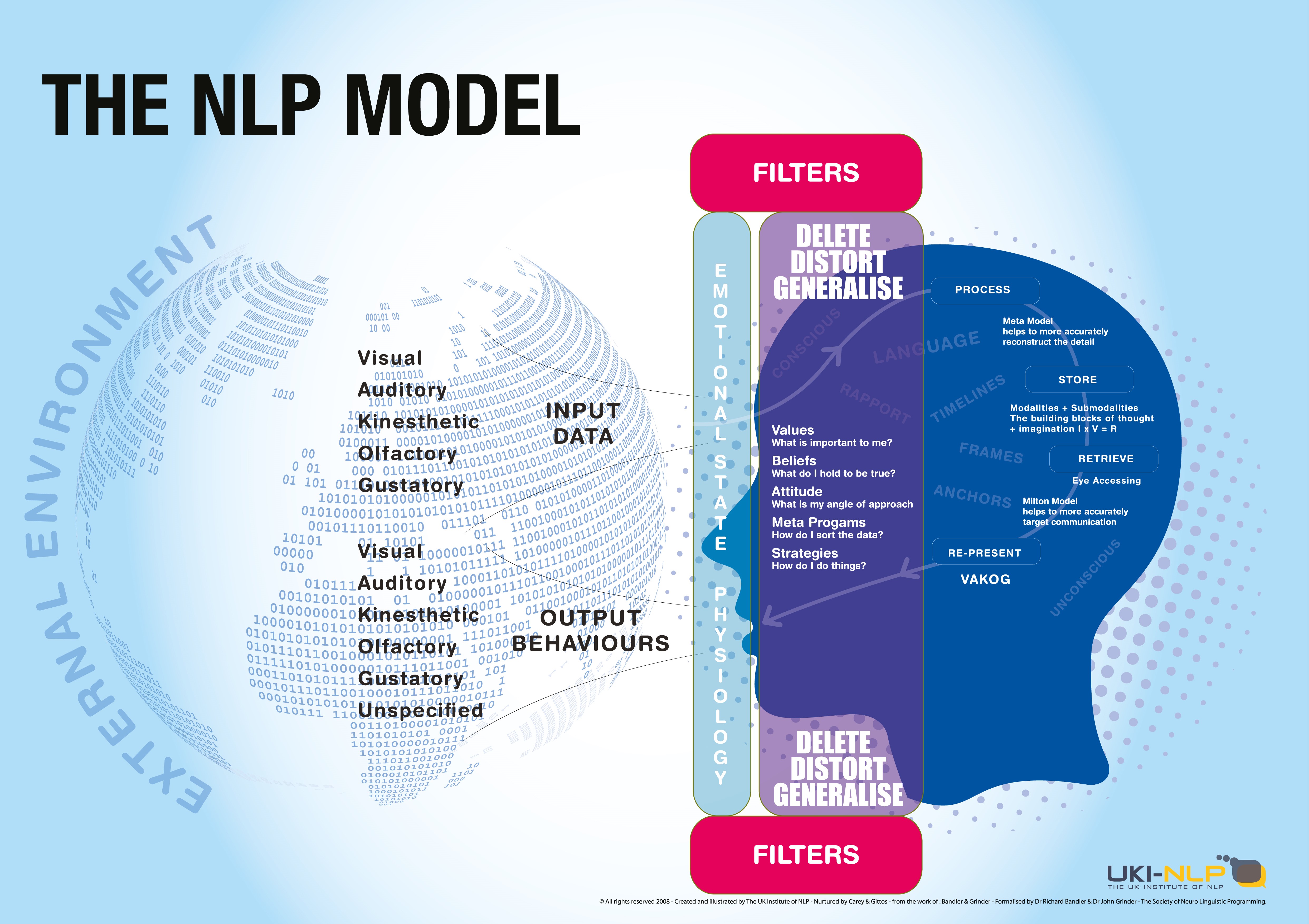In Neuro-Linguistic Programming (NLP), the filters of deletion, distortion, and generalization are often considered to be the building blocks of our reality. These filters are the way that we process and make sense of the world around us. They shape the way we see and experience reality, and can affect our thoughts, feelings, and behaviors. Understanding how these filters work can help us to change our perceptions and create a reality that is more in line with our goals and desires.
Deletion is the filter that helps us to focus on what is most important and ignore what is not. It is the process of selecting specific information from our environment and disregarding the rest. For example, when you are in a crowded room, you might delete the sound of chatter and background noise, focusing only on the person speaking to you. This filter helps us to make sense of our environment by simplifying it and reducing the amount of information that we need to process. However, it also means that we might miss important information if we are not paying attention.
Distortion is the filter that helps us to make sense of the world by reshaping and interpreting the information that we receive. This filter can help us to see the world in a new way and change our emotional response to a situation. For example, if you are feeling anxious about an upcoming meeting, the distortion filter can help you to reframe the situation and see it as an opportunity to showcase your skills and knowledge. However, it can also cause you to misinterpret reality, leading to an emotional response that is not in line with the reality of the situation.
Generalization is the filter that helps us to make sense of the world by drawing connections and making assumptions based on our past experiences. This filter allows us to apply what we have learned in one situation to other situations. For example, if you have learned how to manage stress in one context, the generalization filter allows you to apply those skills and strategies to other situations in your life, such as public speaking or job interviews. This filter can be useful in that it help us to generalize our experience to new situations but it also can lead to bias and stereotype.
These filters work together to create our reality, but they can also be limiting if we are not aware of them. For example, if we are stuck in a negative cycle of thoughts and behaviors, our filters of deletion, distortion, and generalization might be causing us to focus on negative aspects of a situation and ignore the positive ones. By becoming aware of these filters, we can learn to change our perceptions and create a reality that is more in line with our goals and desires.
In NLP, the term for these filters is called a “Meta-program” which is a set of mental processes and strategies that people use to process and make sense of the world around them. Understanding these meta-programs and how they shape our perceptions and behaviors is a fundamental aspect of NLP, and can be used to improve communication, change limiting beliefs, and set and achieve personal goals.
NLP provides a range of techniques and tools for working with these filters to help people change their reality. For example, reframing is a technique that can be used to change the way that people think about a situation, so that they see it in a more positive light. Anchoring is another technique that can be used to create links between a particular state of mind or emotion and a specific situation. By using these techniques, NLP can help people to change their perceptions and create a reality that is more in line with their goals and desires.
In conclusion, NLP recognizes that every person has a unique way of experiencing and creating their reality through the filters of deletion, distortion.
